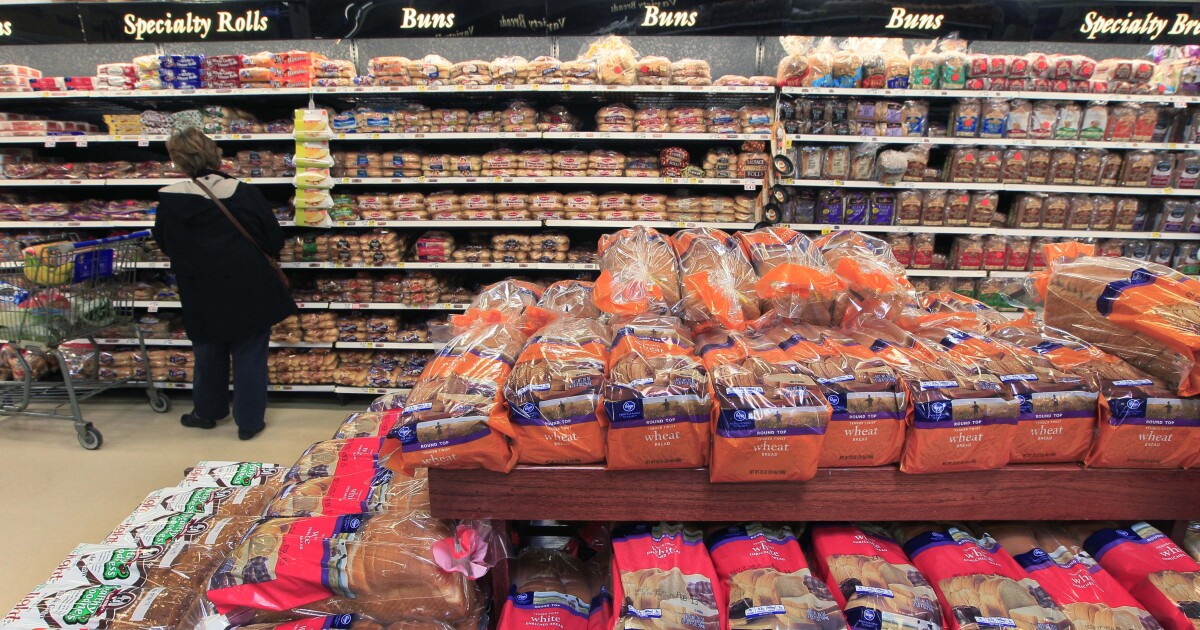With a halt or major delay to two key safety net programs likely next week, social service providers fear a government-shutdown driven crisis as low-income Pennsylvanians will not get food or utility assistance they would normally receive in early November.
Barring a last-minute resolution to the ongoing federal government shutdown, close to two million Pennsylvanians likely won’t receive monthly food assistance benefits.
At the same time, the Low Income Home Energy Assistance Program, which would normally open for the winter on Nov. 3, will not open until December 3 at the earliest, according to Pennsylvania human service officials.
For some families to lose access to both programs at once “will be devastating,” said Elizabeth Marx, executive director of the Pennsylvania Utility Law Project, which aids low-income utility customers.
“This is a real emergency for families that are living on a tight budget,” said Colleen Young, director of government affairs at Greater Pittsburgh Community Food Bank.
The loss of food aid in particular would be enormous — the program helps feed 41 million Americans, or roughly one out of every eight households nationally.
The Supplemental Nutrition Assistance Program, also known as SNAP, or food stamps, sends about $366 million every month to close to two million Pennsylvania households to help them pay for groceries.
“It’s an astronomical amount of money that would not be coming into Pennsylvania,” said Young.
SNAP assists more than 160,000 people in Allegheny County; more than 50,000 of those are children. Monthly benefits to Allegheny County total roughly $30 million.
“The lack of safety net starting as early as next week is truly devastating for our community and not something that can be made up with local foundation or government resources,” said Allegheny County Department of Human Service Director Erin Dalton.
At the Farmer’s Market in Pittsburgh’s North Side last week, tables full of apples, greens, and squash lined the walkway of Allegheny Commons Park.
Shopper Sue Scott said SNAP helped her to buy fresh apples, local honey, lettuce, radishes and mushrooms. She’s a regular patron at the weekly market, Scott said, and also uses a program that allows SNAP shoppers to boost how much produce they can buy.
“The SNAP program is so important to the people who receive it, and that money that comes through SNAP directly enables a rent payment to be made, a utility payment to be made,” Scott said. “So, without the SNAP and you [have] to redirect your free dollars to groceries, that’s that much less that you can turn the heat on.”
The combination of both those supports being gone at the same time, is going to “create a catastrophe for both the emergency food system as well as all of the other charitable organizations that help provide utility support,” said Ann Sanders, public policy advocate at Pittsburgh-based anti-hunger organization Just Harvest.
Kate Giammarise / 90.5 WESA
A sign at the Farmers Market in Pittsburgh’s North Side on Friday, October 24, 2025, lets shoppers know they can use their SNAP benefits there. State officials have said benefits will not be paid in November due to the shutdown.
LIHEAP helps more than 300,000 Pennsylvania households keep their homes heated during the winter.
Since the state’s announcement that November benefits would likely not be paid, the Food Bank’s on-site pantry in Duquesne has had lines out the door, Young said.
Food banks and the charitable food network “are not designed to replace federal nutrition benefits,” she said.
The increased need for the Food Bank’s services come at a particularly bad time, Young said. The agency lost millions in federal food aid earlier this year because of Trump administration cuts, and is also feeling the loss of state dollars right now because of the months-long state budget impasse, which is separate from the federal shutdown.
The federal government has been shut down since October 1, as congressional Democrats have withheld their votes on bills to keep the government running until Republicans move to discuss extending Affordable Care Act subsidies that expire at the end of the year. Republicans control the House, Senate and the presidency, but because 60 votes are needed for most Senate bills, some Democratic support is needed to reopen the government.
Federal officials who oversee the SNAP program said in a letter earlier this month that there will be “insufficient funds” to pay November benefits due to the ongoing shutdown.
“The Commonwealth cannot backfill these costs,” Pennsylvania human services officials said in a statement announcing there would be no benefits paid in November.
“Republicans’ failure to pass a federal budget in Washington, D.C. is having a direct impact on our Commonwealth and now, this federal shutdown is threatening critical food assistance for two million Pennsylvanians who rely on SNAP to feed themselves and their families,” Gov. Josh Shapiro, a Democrat, said in a statement.
Congressional Democrats have urged Trump administration officials to use contingency reserve funds to pay at least part of November’s food benefits. The Trump administration has said they will not do so.
A statement on the U.S. Department of Agriculture’s web site blames Senate Democrats for not funding SNAP.
In the meantime, SNAP recipients who have any unspent October funds can continue to use those.
Some other utility assistance is available from utility providers who are required to have programs for low-income customers.
There is an annual winter shutoff moratorium December 1 through March 31 which prevents utilities from being shut off for customers at or below 250 percent of the Federal Poverty Level.
Advocates are calling on Pennsylvania utilities to stop shutoffs of heat-related service until assistance is available through LIHEAP.
More information about food assistance: Greater Pittsburgh Community Food Bank
More information about utility assistance: Utility Assistance Programs
For information about other assistance available: https://www.pa211.org/

